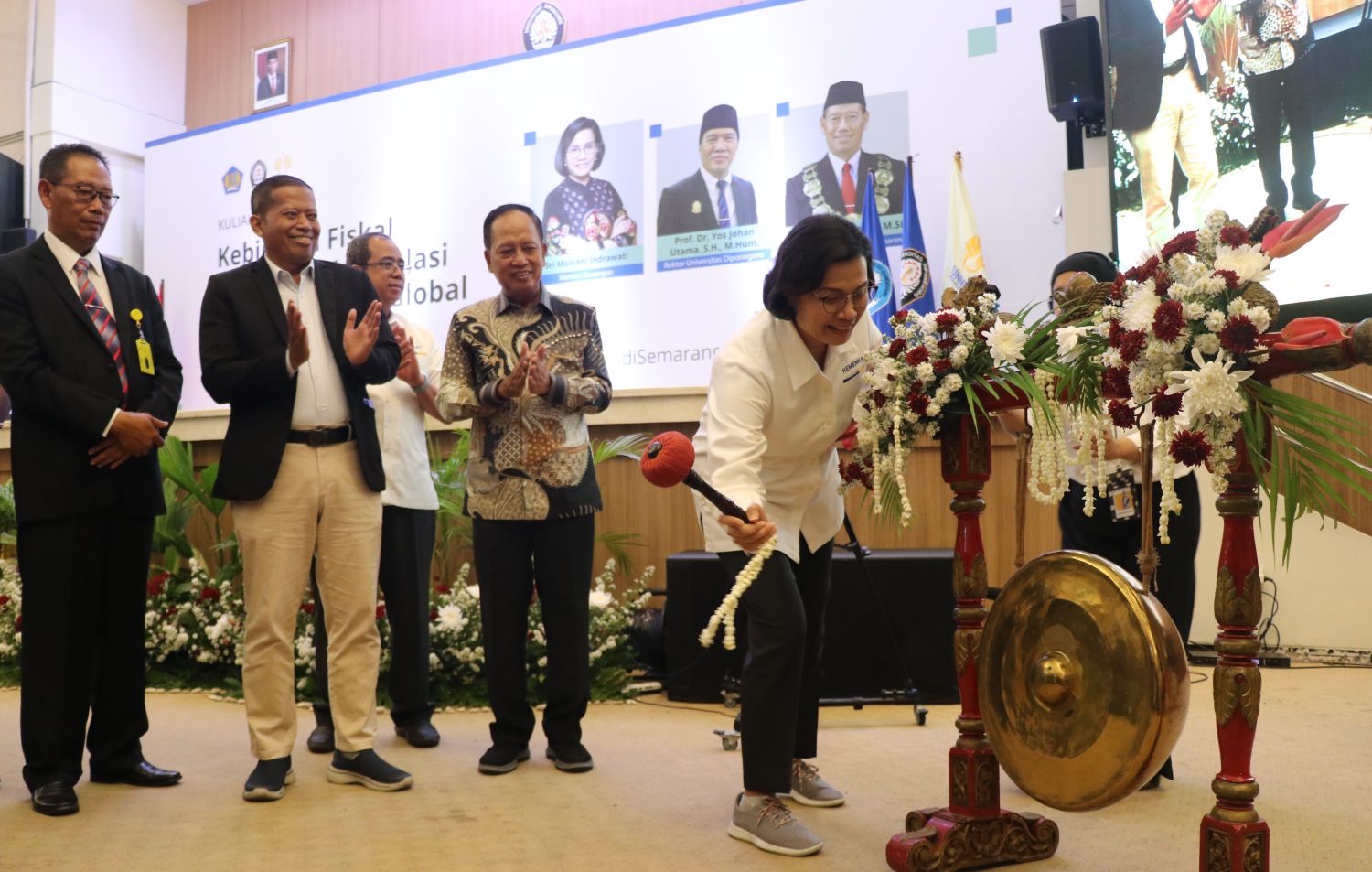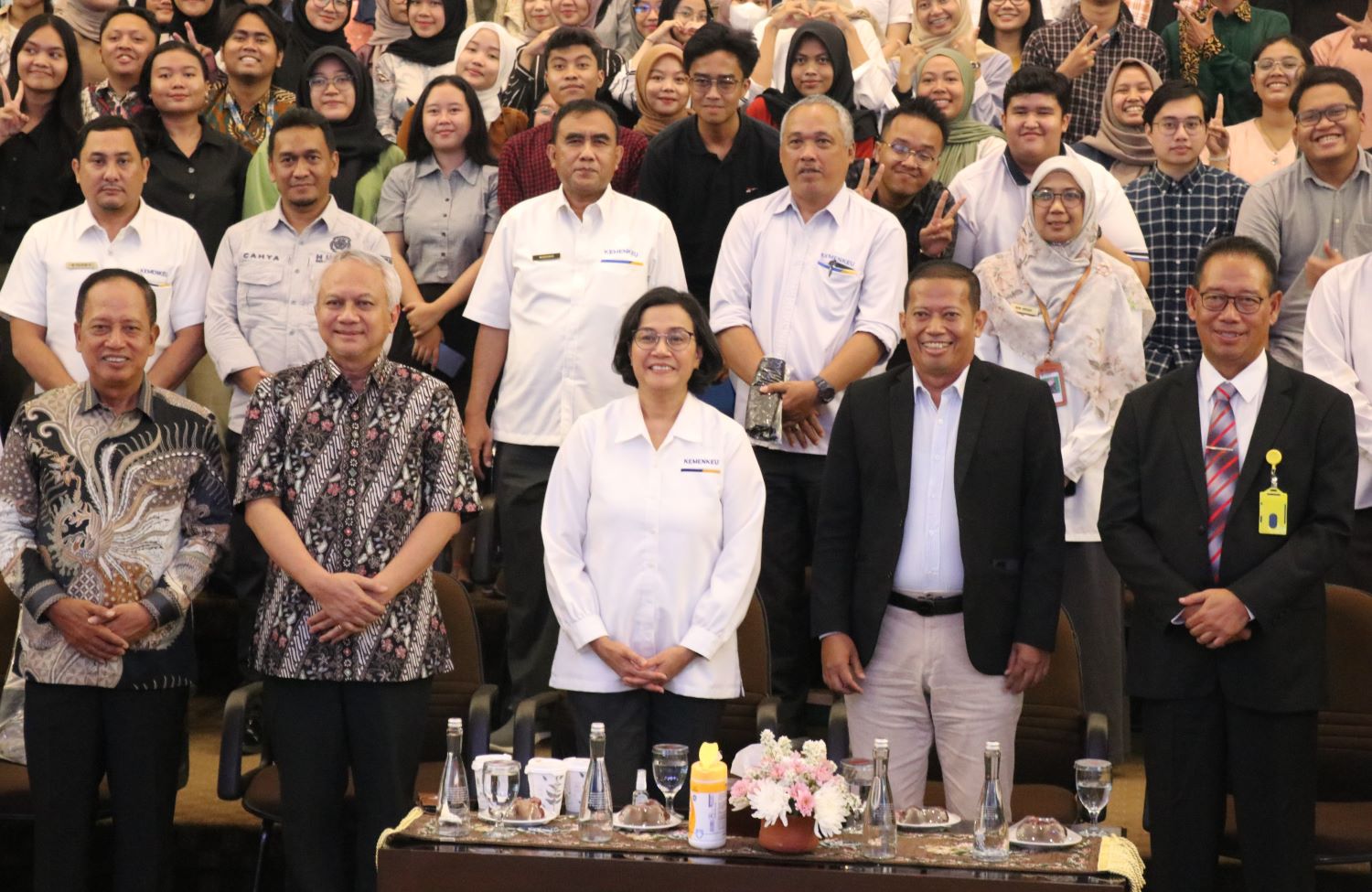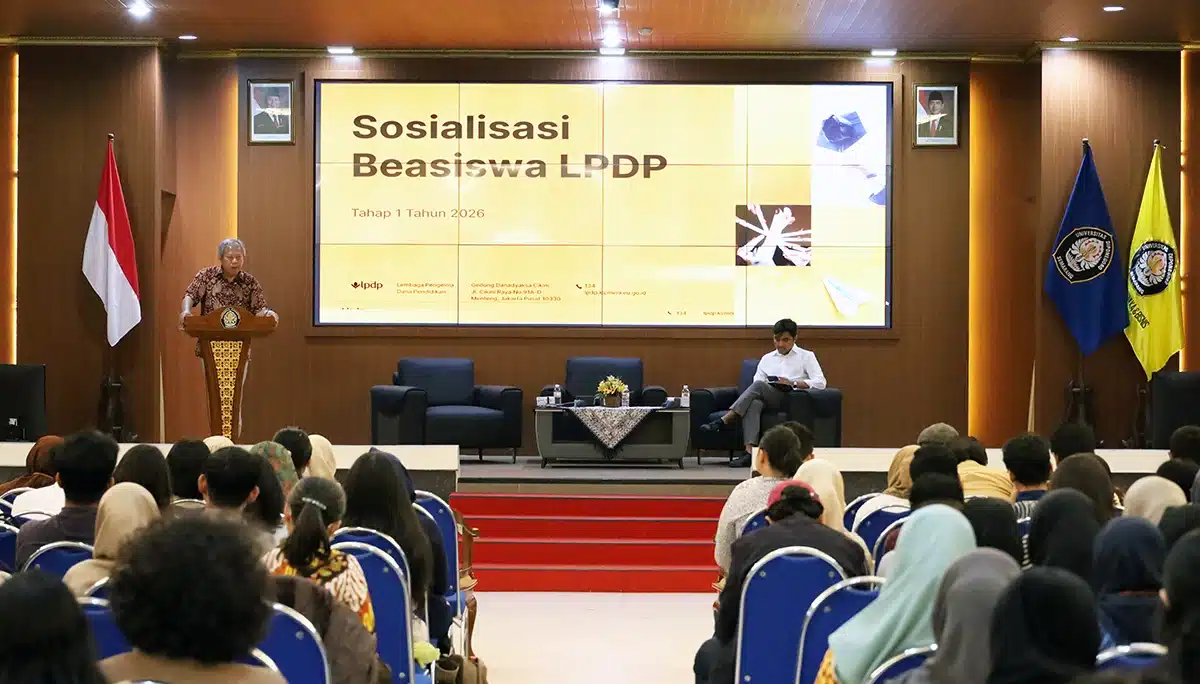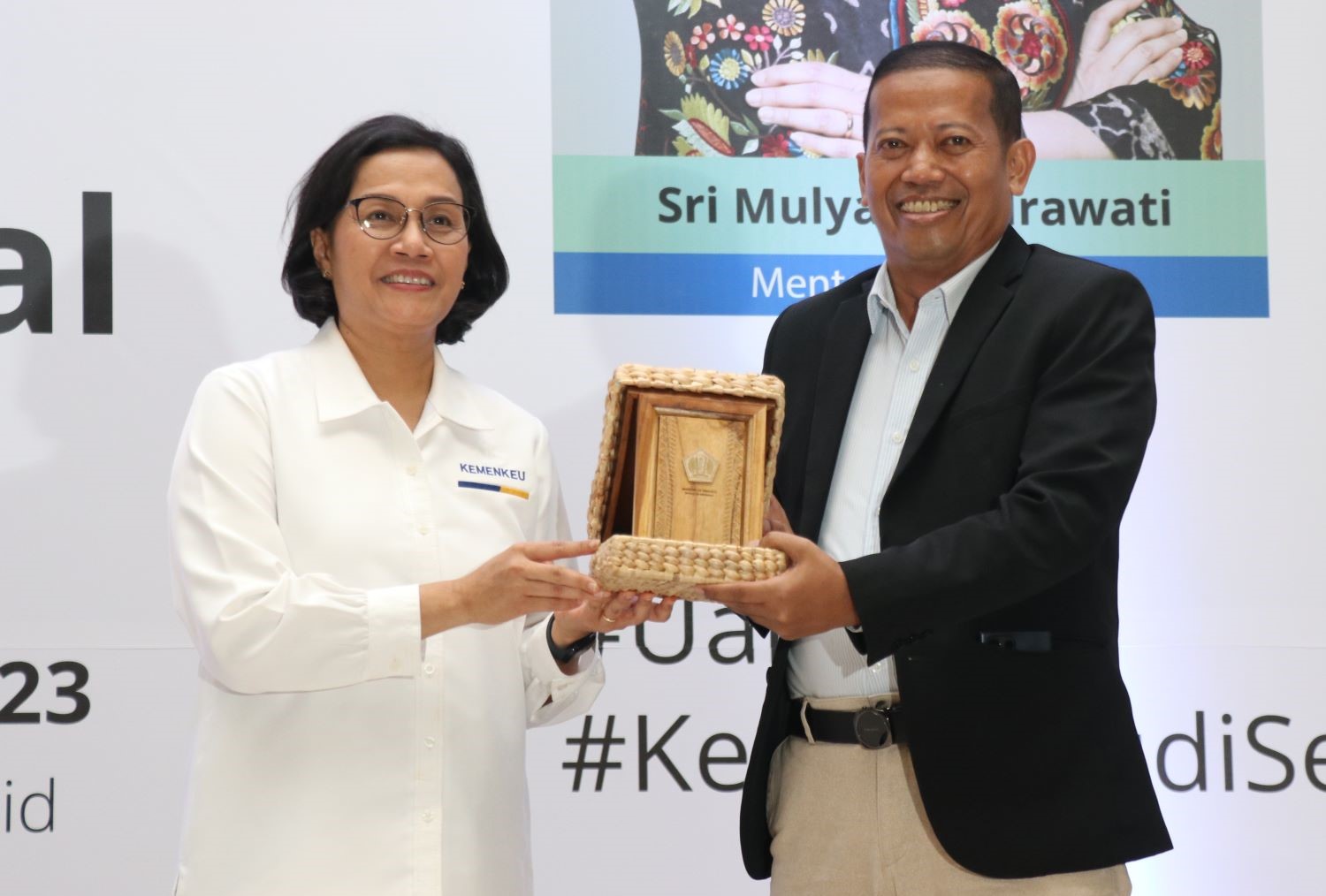Minister of Finance Sri Mulyani gave a public lecture to students at Diponegoro University (Undip) and Universitas Negeri Semarang (Unnes) with the theme “Fiscal Policy in the Midst of a Constellation of Global Uncertainty” Monday (23/10) at the Prof. Soedarto, S.H. Building, Tembalang. Apart from giving public lectures, the Minister of Finance also launched the Ministry of Finance Corner on the Undip Campus.
Representing the Rector, Dean of the Undip Faculty of Economics and Business, Prof. Dr. Suharnomo, S.E., M.Si. said that the future of the global economy looks full of uncertainty and global economic uncertainty always attracts attention in the world of financial business.
“International trade tensions, fluctuating commodity prices, climate change and the health crisis we face are all creating unprecedented economic challenges. In a global situation like this, implementing wise fiscal policy is very important. With limited resources, we must maintain a balance between meeting community needs, financing development projects and maintaining fiscal stability,” said Prof. Suharnomo.
 “Hopefully, this public lecture will be an inspiring forum that provides insight and a deeper understanding of the important role of fiscal policy in a changing world,” he continued.
“Hopefully, this public lecture will be an inspiring forum that provides insight and a deeper understanding of the important role of fiscal policy in a changing world,” he continued.
Meanwhile, Sri Mulyani, in her presentation, revealed that there were challenges that had to be faced and that global economic conditions were not good. According to her, crises always provide momentum to transform the Indonesian economy for the better. The crisis reduces production capacity, especially productivity. Post-COVID-19 reform is necessary to restore economic potential from the supply side: Quality of human resources, infrastructure and bureaucratic/regulatory reform. Fundamental reforms have begun under the Job Creation Law, infrastructure development must continue, and the development of the quality of human resources (social protection (Perlinsos), health and education) is strengthened to increase productivity.
She explained countercyclical, where the government increases spending (expansion) and/or reduces tax rates/DTP during a crisis (recession) to stimulate aggregate demand and prevent less than optimal use of economic resources (underemployment) and conversely reduce spending (contraction) and/or increase tax rates to cool off in order to avoid overheating the economy. Pro cyclical, the government reduces spending (contraction) when the economy is sluggish (crisis) and conversely will increase spending (expansion) when there is a boom.
The Minister of Finance also emphasized the importance of infrastructure development in supporting productivity. “Humans are the key and are supported by adequate infrastructure. Infrastructure is part of increasing productivity,” she explained.
“Students must be critical of the situation. A critical person who has ethics and a critical person who is supported by knowledge and the ability to find out. Understand first to compare, and then we can talk about how we can protect Indonesia together,” concluded Sri Mulyani. (LW-Public Relations)










